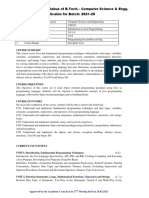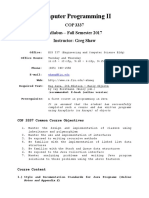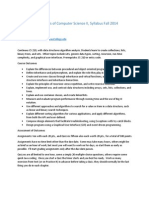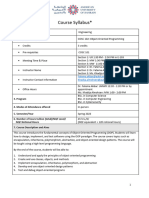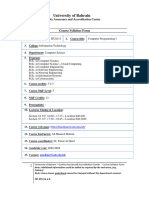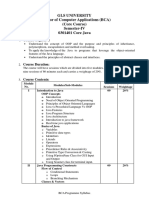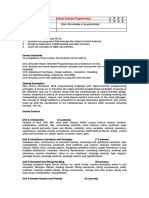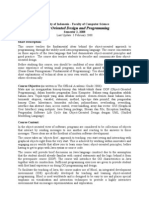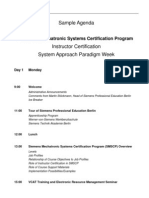0% found this document useful (0 votes)
116 views12 pagesJava OOP Course for Students
This document outlines the course plan for OOPs in Java (IT2C01). It provides details on the instructors, teaching assistants, course type, credits, weekly topics, evaluation components, course outcomes, lab tools, and assignment guidelines. The course will cover important Java concepts like loops, arrays, strings, packages, OOPs principles, collection framework, multithreading, and JDBC over 14 weeks through weekly assignments and tests. Students will implement algorithms, explain program outputs, and write programs using OOPs features. Evaluation will be based on lab assignments, tests, and an end-term lab test.
Uploaded by
Rohit SinghCopyright
© © All Rights Reserved
We take content rights seriously. If you suspect this is your content, claim it here.
Available Formats
Download as PDF, TXT or read online on Scribd
0% found this document useful (0 votes)
116 views12 pagesJava OOP Course for Students
This document outlines the course plan for OOPs in Java (IT2C01). It provides details on the instructors, teaching assistants, course type, credits, weekly topics, evaluation components, course outcomes, lab tools, and assignment guidelines. The course will cover important Java concepts like loops, arrays, strings, packages, OOPs principles, collection framework, multithreading, and JDBC over 14 weeks through weekly assignments and tests. Students will implement algorithms, explain program outputs, and write programs using OOPs features. Evaluation will be based on lab assignments, tests, and an end-term lab test.
Uploaded by
Rohit SinghCopyright
© © All Rights Reserved
We take content rights seriously. If you suspect this is your content, claim it here.
Available Formats
Download as PDF, TXT or read online on Scribd
/ 12

